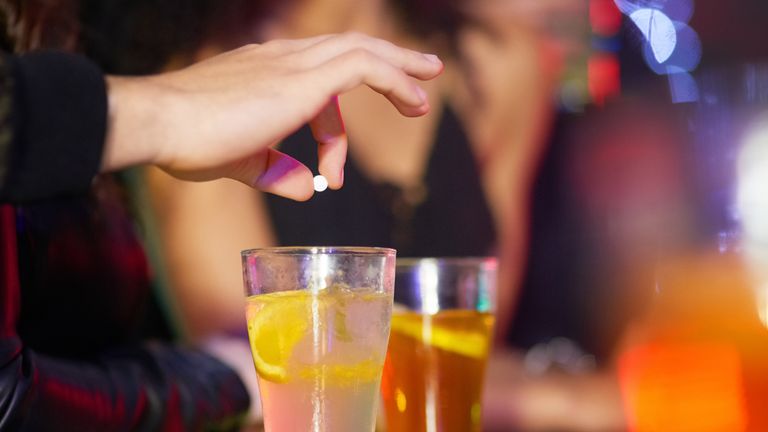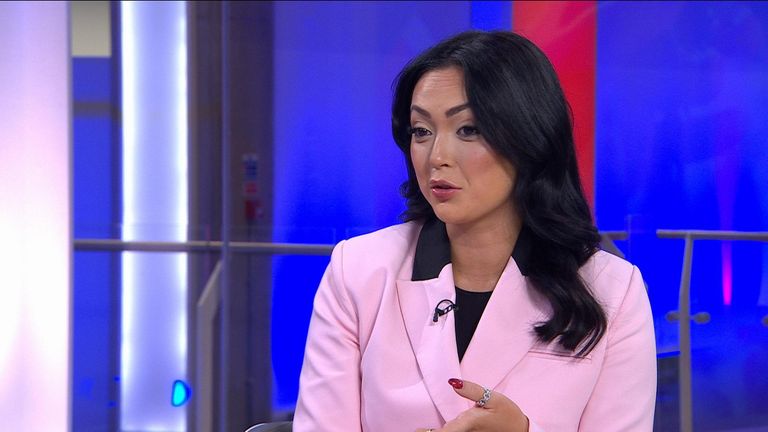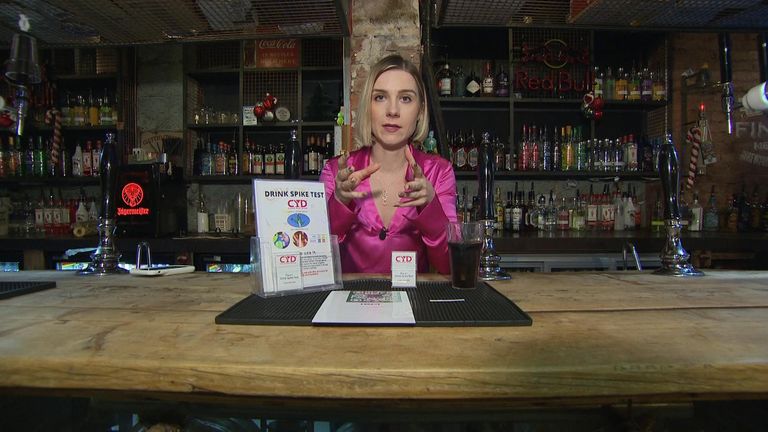What are the symptoms of spiking and what should I do if I think I've been targeted?
Bars and nightclubs are common venues for the crime - and some 10% of women and 5% of men reported being victims in a 2022 poll.
Wednesday 17 July 2024 02:00, UK
Plans to make spiking a specific criminal offence have been outlined today.
Dozens of bills were unveiled on Wednesday in the first King's Speech of Labour's tenure.
While spiking is already a crime, prosecuted as assault or under the Offences Against the Person Act, it will become its own offence for the first time.
How often does spiking happen?
Spiking is when someone gives someone drugs or alcohol without them knowing or consenting, either by putting something in their drink or using a needle.
Police in England and Wales received 6,732 reports of spiking in the year up to April 2023 - with 957 of those relating to needle spiking.
London's Metropolitan Police said reports of spiking had increased by 13% in 2023, with 1,383 allegations.
According to data from the National Police Chiefs' Council, most incidents (80%) happen in public places, with almost half happening in bars, followed by nightclubs.
However, spiking with needles seemed more common than drink spiking in nightclubs, with 38% of incidents involving needles and 17% alcohol.
Some 10% of women and 5% of men reported being victims of spiking in a YouGov poll in December 2022.
Read more:
Kate McCann reveals 'brazen' spiking incident
Mum's warning after video of daughter unable to walk or speak
What are the symptoms of spiking?
The effects of spiking vary, according to Drink Aware, but can include:
• Lowered inhibitions
• Loss of balance
• Feeling sleepy
• Visual problems
• Confusion
• Nausea
• Vomiting
• Unconsciousness
It said symptoms depend on several factors, including the substance or mix of substances used, a person's size and weight, and how much alcohol they've already consumed.
Dawn Dines, founder of Stamp Out Spiking, told Sky News: "Your pupils will go dilated, you'll get blurred vision, you're going to feel very drunk very quickly if you've drunk no alcohol or small amounts of alcohol - sort of like an out of body experience."
The Metropolitan Police said symptoms can start within 15 minutes and can last for several hours, while Ms Dines says they can go on for between six and eight hours.
How can I tell if I was drunk or just spiked?
The symptoms can be similar to having consumed excess alcohol.
Police advise people who start to feel strange or unusually drunk to seek help right away.
What should I do if I think I've been spiked?
Seek help straight away from a member of staff or security. Don't head home on your own or leave with someone you don't know.
Call 111 or an ambulance if symptoms get worse.
"Get to a safe space. Make sure that you're with a trusted friend," Ms Dines advises.
"Once the drugs are ingested, there's basically nothing you can do to stop it."
Be the first to get Breaking News
Install the Sky News app for free


How can I reduce the risk of spiking?
Never leave drinks unattended and be cautious if someone buys or gives you a drink.
Also keep an eye on your friends' drinks in case they are targeted.
What difference will the change in law make?
Ms Dines, from Stamp Out Spiking, says it will "show a clear sign of zero tolerance".
"It will give us the data we need to show how prevalent spiking is, in which areas," she says.
"And it will also hopefully get the current government to put some funding into the spiking issue so that we can train people on the typical signs and symptoms of spiking - show them videos of what people look like and what they act like."





